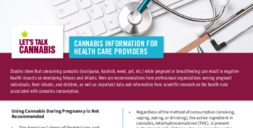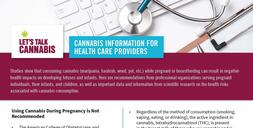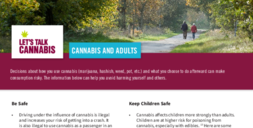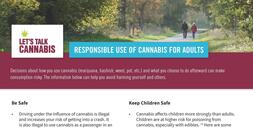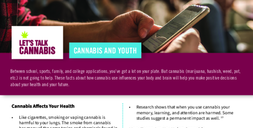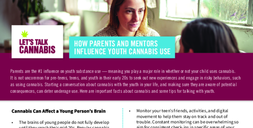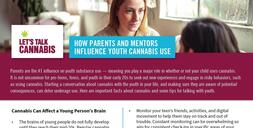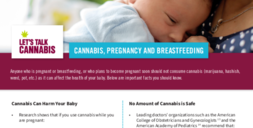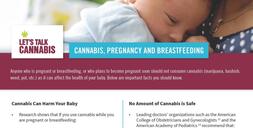Studies show that consuming cannabis (marijuana, hashish, weed, pot, etc.) while pregnant or breastfeeding can result in negative health impacts on developing fetuses and infants. Research also suggests that cannabis use during adolescence can be harmful to the health and well-being of youth.
The American College of Obstetricians and Gynecologists recommends that people who are pregnant or contemplating pregnancy be encouraged to stop use of cannabis.

